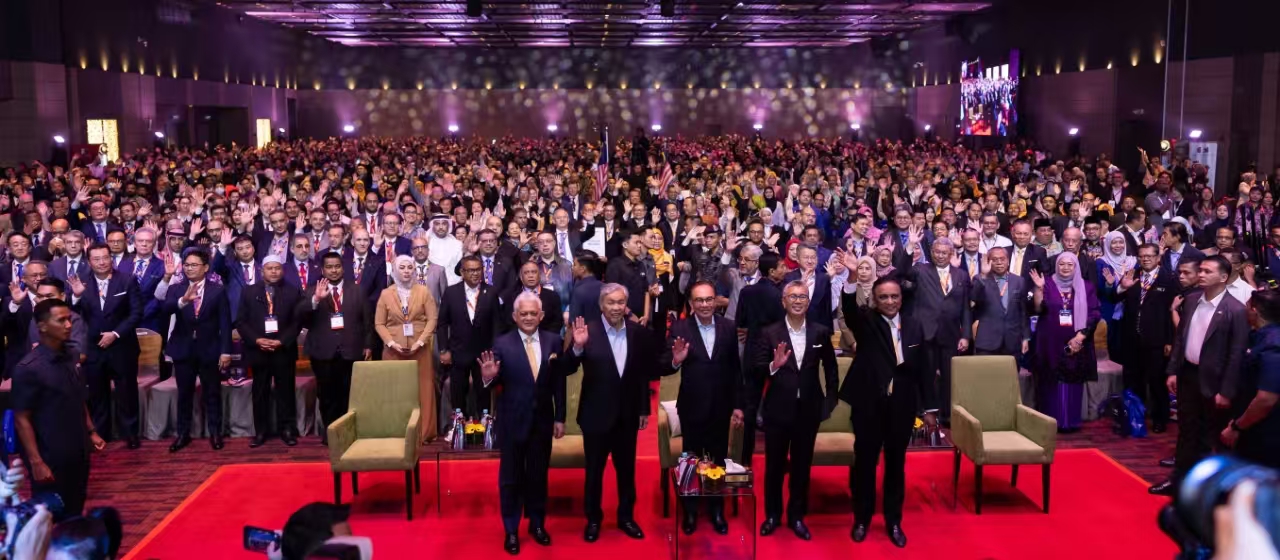Halal business is becoming big business, and China’s huge resources and market present Malaysian businesses with opportunities that just can’t be ignored. To this end, Malaysia sent an official business delegation there. HO WAH FOON reports.
THE business trip to China on May 11-21, organised by the office of Minister in the Prime Minister’s Department, Datuk Seri Wee Ka Siong, was a fruitful and memorable one for both the government officials and the local small and medium enterprises (SMEs) in the 23-member delegation.
Lawrence Low, political secretary to Wee and leader of the tour, says he achieved the two key objectives of the trip — to promote Malaysian halal concept to China and to help local SMEs explore business opportunities in the Middle Kingdom.
The close relations between Malaysian and Chinese officials was evident in almost every city the group visited.
In Xian, there was eagerness to get the Halal Development Corporation (HDC) to help develop Shaanxi’s halal industries. In Qingdao, after a sumptuous dinner cum heavy drinking in traditional Shandong style, the key decision-maker approved the import of seven Malaysian fruits into the province which has a population of about 100 million.
It was an eye-opening experience for SME owners who had participated in one-to-one business-matching sessions during the trip — particularly at the extravaganza held on May 13 at the majestic Paradise Garden in Xian organised by the Bank of China. Over 1,000 firms from all corners of Shaanxi and other provinces came to meet potential business partners from Malaysia, Britain, Italy and other European nations.
Ooi Inn Koon and Yeo Hock Lim of Foremost Food, which specialises in halal cuisines and snacks, say the trip was “well organised” and that they had met with 12 firms at matching sessions.
“Two companies have shown great interest to import and distribute our products in China. Mainland Chinese are comfortable in dealing with Malaysian firms as we speak Mandarin and share certain business values. We also feel that other foreign firms are very keen to do business with China,” says Ooi.
As a journalist, I witnessed for myself the oft-mentioned speed and efficiency with which things get done in China in Xian. On the morning of May 13, there was a downpour and the business matching was held indoor. But as soon as the sky cleared up, hundreds of tables and chairs were moved outdoor within 30 minutes so that the businessmen could enjoy Xian’s cool breezy air in late spring.
Indeed, long before the business-matching took place in Xian, Bank of China’s branches in various countries had already sent out information of short-listed Chinese firms to their potential partners. Hence, no time was wasted on getting basic information and checking authenticity.
On the Malaysian side, our delegation could not have effectively sent out the “halal” message if not for the well-researched and impressive presentation by Hamidon Hamzah, general manager of HDC.
By going halal in its product development, China could resolve its food safety issue and tap into the US$2.3tril global halal market, Hamidon pointed out in his English presentation which was ably translated into Mandarin by Wee’s SME consultant Chiew Kian Seng.
China was told it could take advantage of its strategic location to tap into the Muslim market in Central Asia and Europe. It could also take advantage of the one-belt one-road initiative to gain market access to these markets, and tap the growing Korean and Japanese halal market.
Although Chinese officials generally know Malaysia for its globally accepted Jakim halal certification, selling the halal idea to small towns is something of an uphill task as local officials are unaware of the global halal market. Hence, the halal push by Malaysians was also a learning experience for them.
During the tour, Wee’s officials, including his private assistant Ong Cher Chin, were pleasantly surprised to discover there were already far-sighted Malaysian projects in China leaning towards the halal label.
One is the 15-billion-renminbi integrated property project of Tan Sri Lim Gait Tong. This Asean-themed international eco project near Jinan, capital of Shandong, will include a halal industrial park.
The other is a planned halal industrial park and halal port, which will be launched in a year or two by Sime Darby’s profitable Weifang Port in the central-northern part of Shandong.
These two projects will make an impression in Shandong once they are launched. And if they are highly successful, similar halal projects may mushroom in China.





